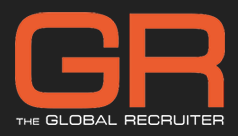Most businesses don’t have playbooks for the current situation. While leaders can draw on lessons learned in the last 20 years from events like the swine flu (H1N1) in 2009, and the global recessions of 2001 and 2008-09, the social and economic impacts of the COVID-19 pandemic are without precedent in most people’s lifetimes.
One aspect on which leaders are facing more immediate pressure is the question of rewards and performance management. According to advice from organisational consultants Korn Ferry, organisations need to take a balanced approach in the face of the current uncertainty and avoid making rash, short-term decisions that could lead to future retention challenges.
Trevor Warden, Korn Ferry’s Co-Lead APAC Rewards & Benefits said: “As much as economically possible, I would suggest riding out the storm. Be flexible in rewarding those who rely on performance such as sales commissions. Supporting staff now will win hearts and minds for a long time.”
Rather than relying on last year’s performance, organisations should think about performance planning more holistically – and how external environments might influence the future. Some organisations will face significant disruption to demand, while for others revenue may only be postponed.
As leaders review their position and make decisions about rewards in their organisation, Korn Ferry’s experts recommend they consider the following eight principles to help guide decision-making and ensure they’re in the strongest possible position for the coming recovery:
Employee wellbeing. This should be at the top of your priorities. People are looking for employers they can trust, and there is a huge reputational risk for those who fail to act with compassion during periods of crisis like this.
2020: consider it a two-cycle year. Focus on different objectives in each half. In the first period, leaders should set corporate targets, rather than individual goals. In the second half, leaders can implement a more traditional scorecard approach. Performance reviews will need to take place at least twice this year, to reflect the likelihood of vastly different business environments and ensure your employees stay engaged.
Weigh up internal performance vs external impact. Differentiate between a lack of performance caused by the virus’ impact on the market, and specific issues with individuals. The pressure is on to differentiate between your top and average performers, to avoid the risk of losing your best people.
Remember this is temporary. Avoid drastic near-term actions that could weaken prospects for bouncing back.
Review your target setting. It’s important to assess what can realistically be achieved during the first six months of the year. Irrational targets can make employees feel like you’re setting them up to fail. If they are discouraged and deflated, you’ll risk losing them.
Think holistically about rewards. With recruitment freezes now in place across many organisations, employees may seem unlikely to leave during a crisis. However, ignore the urge to cut bonuses, freeze salary increments or shed talent. When demand picks up again – and it will – your best performers will be the first ones to go.
Start planning now for long-term programs. Forward-thinking organisations realise the current disruption offers them a unique opportunity to begin implementing major change projects – things that had been ‘too hard’ during busy periods.
Treat people like adults. Many organisations will come out of the current crisis unscathed and perhaps even stronger – these will be the ones that communicate openly with their teams and build trust. If there’s ever a time to be transparent with your employees about rewards and performances, this is it.


